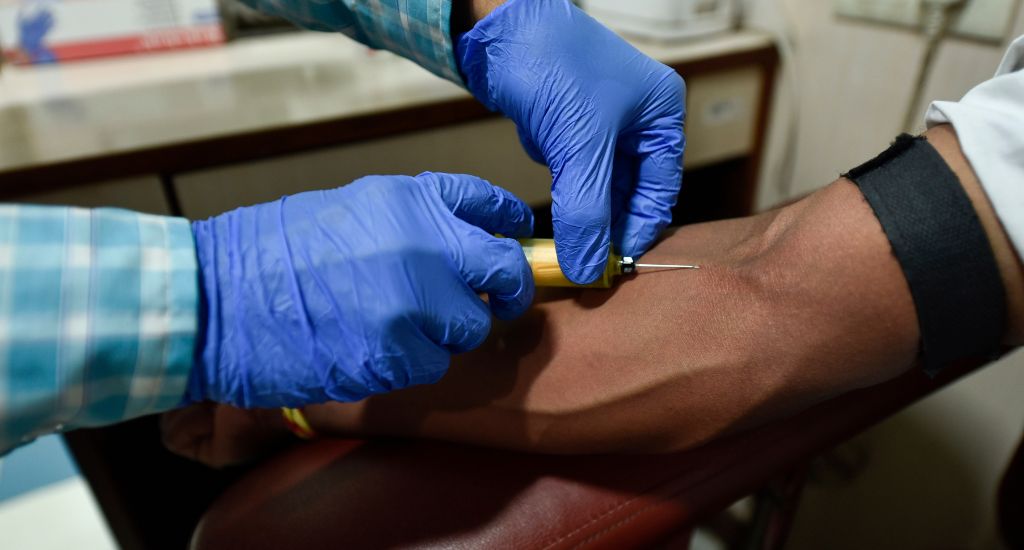
Village battles cancer as Punjab’s environmental crisis deepens
The village of Sirsiwala in Punjab's Mansa district is grappling with an alarming rise in cancer cases linked to groundwater pollution and intensive pesticide use.

The village of Sirsiwala in Punjab's Mansa district is grappling with an alarming rise in cancer cases linked to groundwater pollution and intensive pesticide use.
Sirsiwala, a village in Punjab’s Mansa district, is a place where mentioning the word ‘cancer’ is avoided out of fear. The pervasive grip of cancer in Punjab and the devastating toll of suicide tied to the illness and its financial toll have left an indelible mark on the residents.
“We don’t have any words to express it; cancer and suicides have turned us to stone,” said Nirmal Singh, a farmer battling throat cancer since 2015. His predicament is symptomatic of the struggles faced by many in this community.

Nirmal’s modest home, where he lives with his wife and two young daughters, reflects the dire financial straits that have come to define their existence. The weight of his illness and the crushing burden of debt have driven away even close relatives, leaving the family to face their hardships alone. But the greatest tragedy struck when Nirmal’s 22-year-old son Yadwinder Singh succumbed to the pressures of crop failures and mounting loans. Yadwinder ended his life on the Delhi-Bathinda railway track that runs through Sirsiwala, leaving his family to grapple with an unimaginable loss.
“We had no idea where he was going. In the evening, a railwayman brought the news of my son’s death,” Nirmal said.
The Malwa belt of Punjab, known for producing some of the world’s finest cotton, has been plagued by severe environmental challenges. In Sirsiwala, low and polluted groundwater levels have decimated crops, driving farmers into deeper debt.
“We took a loan and drilled a borewell 900 feet deep to access water, but it broke, leaving us right where we started,” Nirmal recounted, his voice tinged with despair. “Jaundice, cancer, and skin diseases are common in our village because the drinking water is polluted and salty.”
Also Read: Rural women are unaware of the risk of breast cancer
Yadwinder once dreamt of saving his father from cancer but was ultimately overwhelmed by the unrelenting debt and depression. Nirmal’s family history is marred by the disease, with his father and aunt both dying of throat cancer, indicating the rising cases of cancer in Punjab.
Cancer’s reach extends far beyond Nirmal’s household. The village of Sirsiwala, with a population of 1,100, is rife with cancer cases, with 38 patients currently struggling with the disease and more than 50 suicides tied to the illness and its financial toll. In June 2021, a villager named Charna Singh took his life on the same railway track where Yadwinder ended his.
Sukhpal Kaur, a 45-year-old labourer, shared a similar story of hardship. Suffering from breast cancer, she struggles to afford her monthly medical bills of Rs 5,000. Her family has sold their house and livestock to cover treatment costs, yet cancer continues to ravage their lives in this Punjab village.

“I am undergoing treatment in Bikaner. I haven’t been able to afford my medication for two months. Recently, when the pain became unbearable, villagers pooled funds and covered the Rs 20,000 cost for essential tests to save my life,” she said.
Agamjot Kaur, a five-year-old, is also battling throat cancer. Her father has spent Rs 7 lakh on her treatment, selling land and assets to save her life. “The doctors tell us not to drink the local water, but how can we afford to buy water every day?” he asked. “The child cannot be left to die. Agamjot is receiving treatment at AIIMS Bathinda. This devastating illness has overwhelmed the entire family. All our resources are drained into cancer treatment. We’ve had to sell our home, land, farming equipment, and even jewellery to sustain her through this dreadful disease,” he said.
The polluted groundwater in Punjab is a major factor in the cancer epidemic. Excessive pesticide use and environmental pollution exacerbate the situation, making the Malwa belt a notorious cancer hotspot. The lack of accessible healthcare compounds the problem, forcing residents to travel great distances for treatment, often beyond their financial means.
The Indian Council of Medical Research–National Cancer Registry Programme (ICMR-NCRP) reports a troubling rise in cancer cases in Punjab, with a seven percent increase over the past three years — from 39,521 cases in 2021 to 42,288 in 2024.
Also Read: Dry taps drive people to toxic groundwater in Bihar
The districts of Mansa and Sangrur are particularly hard-hit. The Population Based Cancer Registry, part of the National Cancer Registry Programme, identified polluted groundwater, dietary habits, and limited healthcare access as primary causes.
“The water contamination levels are alarmingly high, making it a major cause of cancer. Also, villagers in these districts drink a lot of hot tea, which can harm the stomach, liver and intestines,” a researcher said.

Despite the presence of an AIIMS in the region, its services remain inaccessible to many due to financial constraints. “Because of monetary issues, villagers frequently delay cancer diagnosis, neglecting initial symptoms until seeking help when it’s often too late,” the researcher said.
The central government’s “Strengthening of Tertiary Care Cancer Facilities Scheme” aims to improve cancer care infrastructure, approving funding for hospitals in Amritsar and Fazilka. However, for the villagers of Sirsiwala, these efforts seem distant and insufficient. As the silent plague of cancer and suicide rages on, claiming lives and shattering dreams, the residents of Sirsiwala fight a losing battle against disease and poverty.
Watch: The Fighters lead the charge against cancer in Odisha
The lead image on top shows a man undergoing a blood test. (Representational image from Shutterstock)
Kiranjit Kaur Jhunir is an independent journalist based in Punjab.